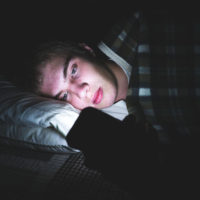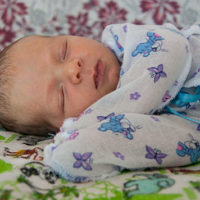Search results
-
Recommended
Sleep
Children and adolescents who are experiencing difficulties with their mental health also often struggle with their sleep. Indeed disrupted or altered sleep has been associated with most psychiatric disorders (Gregory & Sadeh, 2016). Although a range of sleep difficulties can co-occur with mental health problems, a common difficulty is insomnia. As such this guidance will primarily focus on difficulties with getting to sleep and staying asleep.
Read more -

-

CAMHS around the Campfire – ‘Self‐reported sleep patterns and quality amongst adolescents: cross‐sectional and prospective associations with anxiety and depression’ Faith Orchard et al (2020)
FREE live online journal club. Each 1-hour meeting will feature a new piece of research, which we’ll discuss in an informal journal club session. 17.00 UK, (USA – 12 noon ET, 11.00 CT, 09.00 PT)
- Event type
- Informal Journal Club
- Location
- Online
-

JCPP Editorial: Volume 61, Issue 10, October 2020
“Is sleep the red flag to psychopathology’s bull?” by Michael Gradisar, Alice M. Gregory, Liat Tikotzky
Read more -

FREE webinar ‘OpenHouse on Autism’ – In search of a bedtime routine. What to do when your child won’t sleep.
FREE webinar! Join our host Emma Woodhouse, autism specialist with Clinical Partners, sleeping disorder specialist Dr. Charlie Tyack and leading autism clinician Dr. Ann Ozsivadjian to discover practical ways to address challenges around getting your child to bed.
- Event type
- Live Stream
- Location
- LIVE STREAM
-

Improvements of adolescent psychopathology after insomnia treatment: Results from a randomized controlled trial over one year.
Many adolescents experience sleep problems, which can be caused by hormonal changes during puberty, and social changes with increasing complexity of daily life while growing up.
Read more -

Sleepiness in adolescence is associated with criminal behaviour in adulthood
Poor sleep seems to be associated with antisocial and criminal behaviour, but the longitudinal nature of this relationship is unclear.
Read more -

Day-time naps promote vocabulary growth in early childhood
Napping is at least as important, if not more so, than night-time sleep when it comes to vocabulary learning in early childhood. Find out why.
Read more -

Time spent awake during the night in infancy is a marker for cognitive trajectories
This article is a summary of the Original Article in the JCPP: Infant wake after sleep onset serves as a marker for different trajectories in cognitive development – by Pisch et al.
Read more -

Chronotype and Depressive Symptoms in Adolescence
In this Papers Podcast, Dimitris Tsomokos discusses his JCPP Advances paper ‘Chronotype and depression in adolescence: Results from a UK birth cohort study’. Dimitris is the first author of the paper. There is an overview of the paper, methodology, key findings, and implications for practice.
Read more -

Predicating Responses to Insomnia Prevention Programme in Subgroups of At-Risk Adolescents
In this Papers Podcast, Dr. Si-Jing Chen discusses her JCPP paper ‘Subtyping at-risk adolescents for predicting response toward insomnia prevention program’. Si-Jing is the first author of the paper. There is an overview of the paper, methodology, key findings, and implications for practice.
Read more